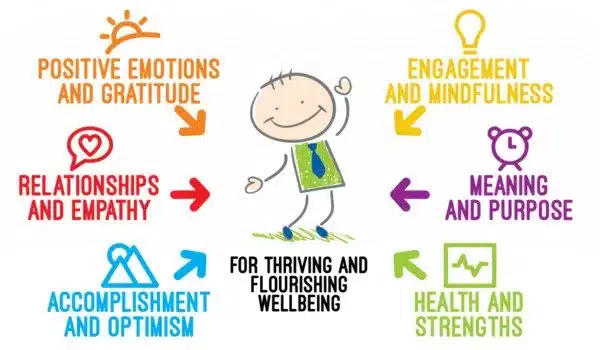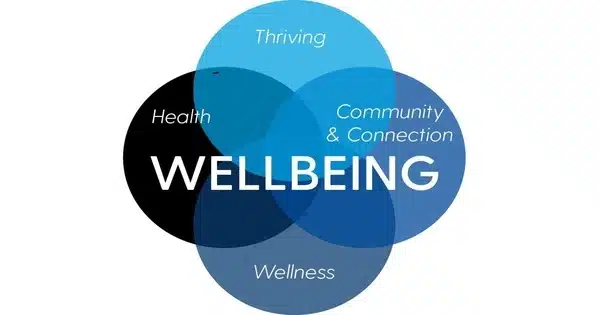Learning about wellbeing can have a number of positive effects on the wellbeing of university students. According to research, studying wellbeing science as part of their courses could be a key way to improve how today’s students cope with the barrage of stressors they face. Learning about wellbeing equips university students with the skills they need to navigate challenges, build resilience, foster positive relationships, and make informed choices that support their overall health and happiness.
Students are a high-risk population for mental illness because they face increasing academic demands, high levels of loneliness, and ongoing financial pressures, all of which can have a negative impact on their mental health. A Swansea University team has now investigated the impact of an optional wellbeing science module offered to undergraduates on students’ wellbeing.
The study was published in the journal Teaching of Psychology by Professor Andrew Kemp and his co-authors, consultant clinical psychologist Dr. Zoe Fisher of the University’s Health and Wellbeing Academy, and Ph.D. student Jessica Mead.
Our study was conducted during the Covid pandemic and demonstrates the capacity of strategically designed modules to improve student wellbeing during challenging times. These findings have important implications for thinking about how the education sector can support wellbeing in the face of other major societal stressors like the climate disaster.
Professor Andrew Kemp
Professor Kemp, who is the research lead at the School of Psychology, said: “The wellbeing of university students is deteriorating, highlighting a critical role for institutions to better support student wellbeing.”
Previous research has looked at the impact of positive psychology on student wellbeing, but the team’s module went beyond that, focusing on promoting a sense of connection to oneself, others, and nature.
“Research shows that issues like inequality and anthropogenic climate change can have an impact on people’s happiness,” he said. Our module encourages students to think about these issues and what they can do within their capacity to address major societal issues. While individuals’ capacity to promote their own well-being is greater than their capacity to promote collective and planetary well-being, there is still enormous scope for individuals to promote collective and planetary well-being alongside larger collaborative efforts, such as volunteering and effective activism.”

The team used questionnaires to assess students’ feelings of wellbeing before and after completing the module, alongside the results from a control group that did not complete the module. Comparisons with published norms further highlighted the beneficial impact of the module.
The team says its research is significant for several key reasons:
- students are at high risk of developing mental health difficulties;
- improvements in wellbeing have been shown to reduce future healthcare costs; and
- the findings demonstrate that wellbeing can be improved despite great hardship and suffering.
“Our study was conducted during the Covid pandemic and demonstrates the capacity of strategically designed modules to improve student wellbeing during challenging times,” explained Professor Kemp. These findings have important implications for thinking about how the education sector can support wellbeing in the face of other major societal stressors like the climate disaster.”















